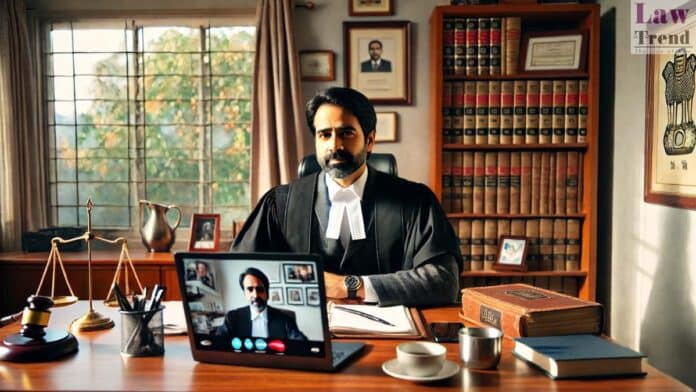In a significant modernization effort, the Bombay High Court has announced the implementation of new video conferencing rules for judicial proceedings across Maharashtra, Goa, and the Union Territories of Daman and Diu, and Dadra and Nagar Haveli. The guidelines, titled “High Court of Bombay Rules for Video Conferencing for Courts 2022,” will take effect on December 29.
Published in the gazette on December 19, these rules aim to enhance the efficiency and accessibility of the judicial system. They will apply to a broad array of courts, including Family Courts, Labour Courts, Industrial Courts, Co-operative Courts, Motor Accident Claims Tribunals, and School Tribunals.
Key highlights of the new regulations include the official recognition of video conference hearings as formal judicial proceedings. Participants will be required to provide government-issued identity proof or other personal details to participate. The rules strictly prohibit unauthorized recording of the proceedings to ensure the integrity and security of the virtual hearings.
Designated coordinators will oversee the technical setup at both the court and remote locations to ensure smooth operations. The rules specify that participants must use desktops or laptops with stable internet connections to avoid disruptions. Coordinators are also tasked with confirming the readiness of all technical systems and participants at least 30 minutes prior to the scheduled time of the hearing.
Special provisions are included for witnesses who are abroad or in custody, allowing them to testify through secure video links managed by local authorities or Indian consulates. Requests for video conferencing hearings must be submitted in a prescribed format, and all necessary documents are to be shared electronically in advance to facilitate thorough preparation.
Additionally, the rules permit various procedures such as judicial remand, framing of charges, and examinations of accused persons under the Code of Criminal Procedure to be conducted via video conference, except in specific situations like judicial or police remand, which require exceptional circumstances to be recorded in writing.
The introduction of these rules marks a progressive step towards integrating technology into the judicial process, ensuring that proceedings remain transparent, secure, and accessible to all parties involved. The costs associated with video conferencing, particularly the technical expenses incurred by the requesting parties, will generally be borne by them unless otherwise directed by the court.




